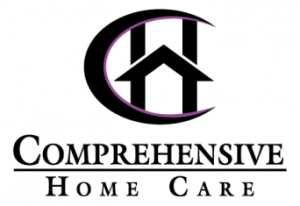Elderly Hoarding
Do you have a loved one who struggles with elderly hoarding? Is this situation becoming increasingly difficult to manage? Are you concerned?
Pathological or compulsive hoarding, officially known as disposophobia, is much more than just collecting or living with clutter. It’s the excessive gathering of objects, regardless of whether these objects have any value or use. The idea of giving away or throwing away any of the items, even trash, results in great stress.
Elderly hoarding causes several problems. Too many objects in a senior’s living space can cause problems with hygiene – both in the home itself and with personal hygiene if cleaning facilities are blocked. Extreme clutter can lead to social isolation, due to the person’s embarrassment about the state of the home and his or her inability to clean up sufficiently to go out. The clutter can also be a serious safety hazard. Clutter can result in falls, destroy home foundations, and block exits in the event of an emergency.
Helping someone who struggles with elderly hoarding can be difficult. Those who hoard place an extreme amount of value on their possessions. Clearing anything away can be painful.
If you have a loved one who struggles with elderly hoarding, the tips below may help:
Try not to judge the person. It may be difficult, but if your senior loved one doesn’t feel judged, he or she may be more likely to work with you. Avoid statements such as “What a mess!” or “How can you possibly live like this?”
Use upbeat language. If you see any improvements at all, no matter how slight, such as a path from one room to another that is wider than it was before, congratulate them on trying to make things safer. If you notice a trash bag with trash to go out, let your loved one know that this is wonderful progress. Whenever there is something to praise, do so: “I can imagine how hard it was to fill that trash bag. I’m so happy you were able to do that.” You can also point out the nice things in the home, such as a beautiful painting, or an unusual decoration.
Never argue. Seniors who hoard have their reasons and arguing usually results in them shutting down the conversation. You don’t have to agree with what the person says, but arguing may result in them becoming defensive, pushing further away from a solution. If an argument is ensuing, it may be time to take a walk around the block or call it a day.
Be understanding. Some things are just too important for your loved one to part with. When cleaning out a home, it’s important to remember that not everything has to go. We all have certain items that are dear to us. Recognize and acknowledge this.
Comprehensive Home Care’s home care experts have seen what hoarding can do and our experienced caregivers know how to help. As the top-rated home care agency in the Charlotte area, we can provide in-home care services, including friendly companionship to help seniors feel accepted and socially involved. Contact us here or call us at 704-333-5214 for a professional assessment to learn how we can help your senior loved one.
Check out 4 Situations When Home Care is Beneficial to learn more.
